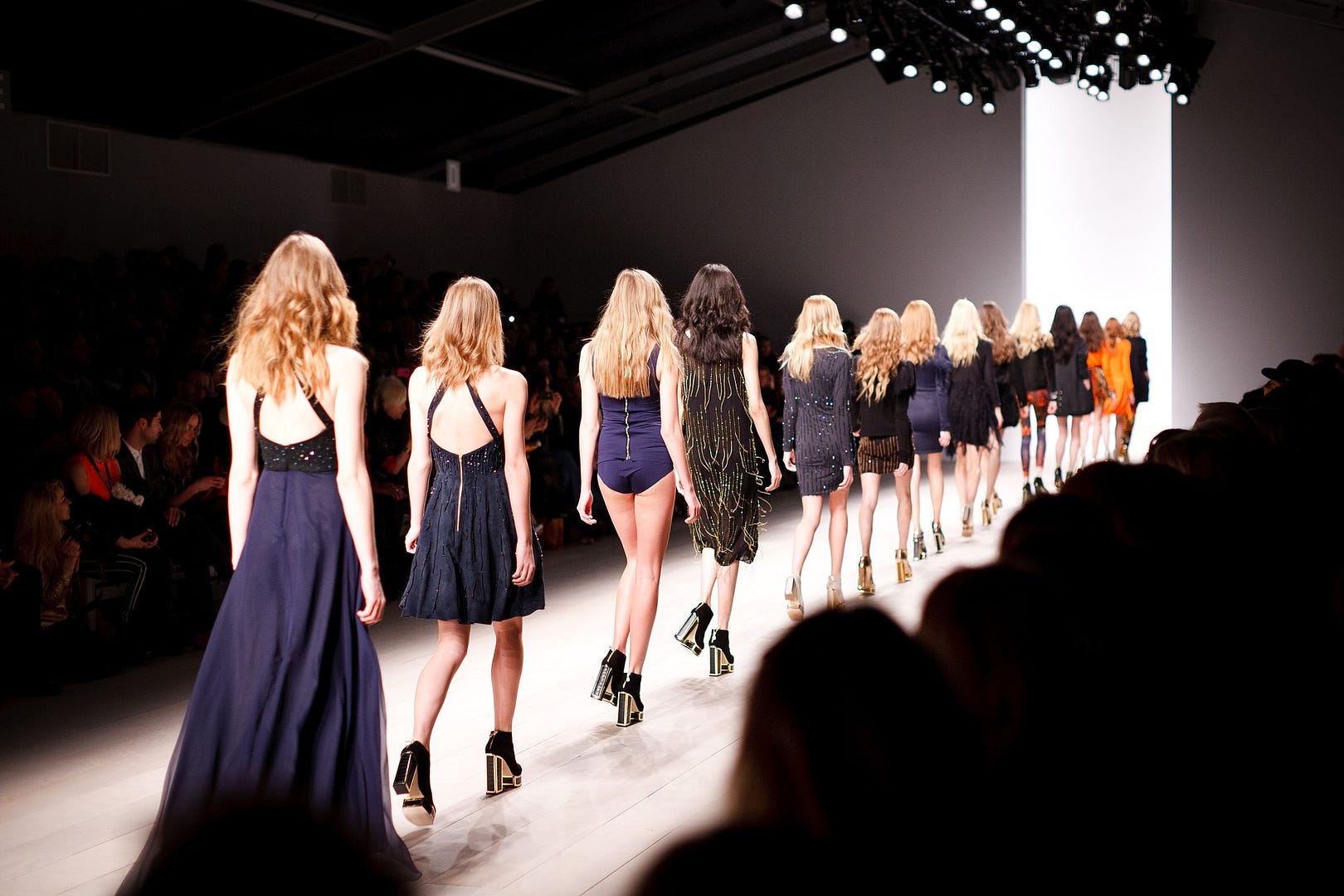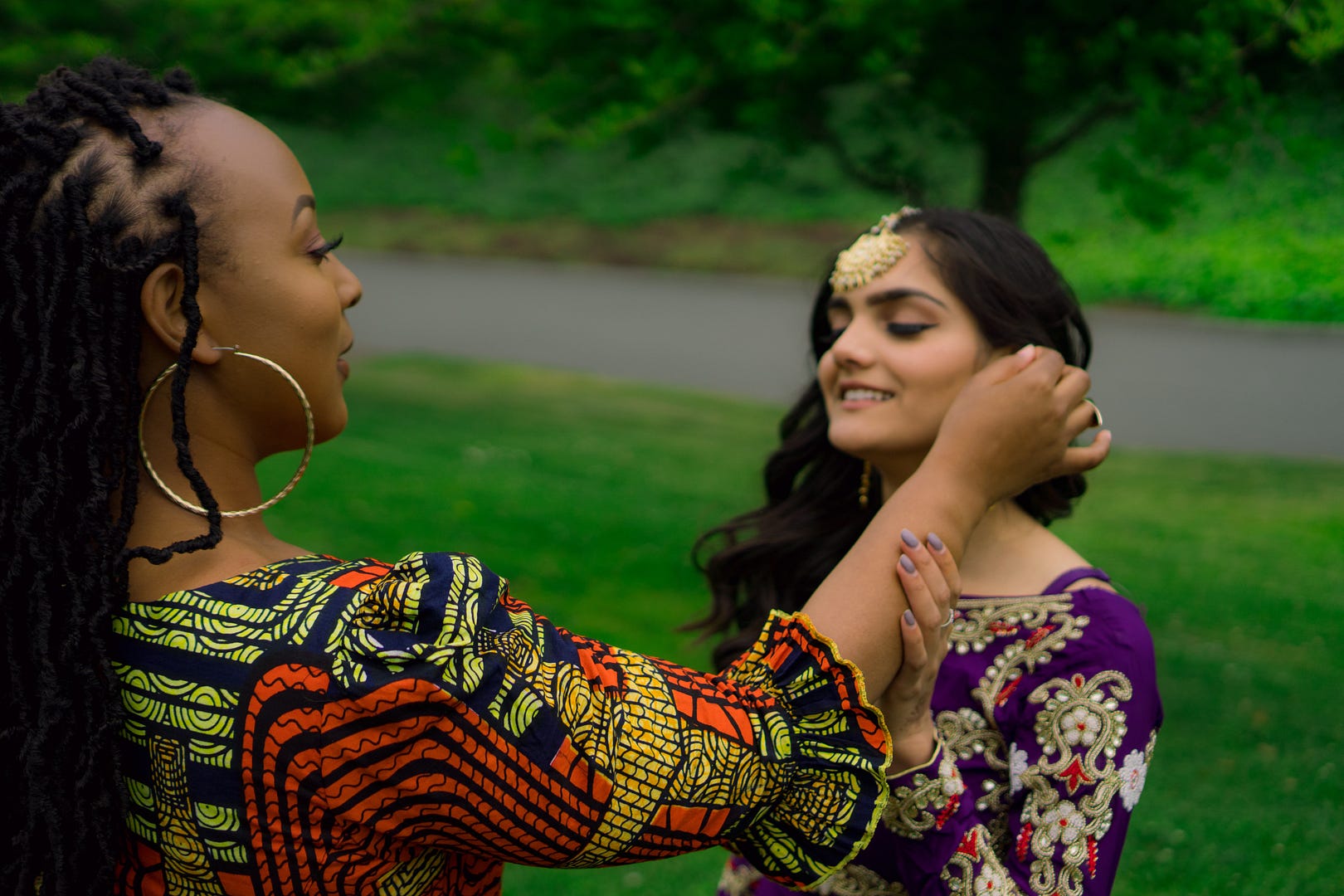Image by Анастасия Гепп from Pixabay
Do we focus too much on fashion and looks in how we celebrate each other?
I spend a lot of time thinking about women’s empowerment, both professionally and personally, and the ways in which women communicate with and support each other.
One thing I’ve noticed recently is that I have a habit of complimenting my friends and coworkers on what they’re wearing. This mainly happens because I enjoy admiring their sense of style — I find what people are wearing to be such a compelling and creative way in how they present themselves to the world. I love it when they have something on that makes them feel confident and expressive in how they dress. But lately I’ve been worried this can come across as me not acknowledging their many other accomplishments that have nothing to do with their fashion choices, qualities that are much more significant.
Why do I do this? Why do so many women do this, in general?
When we tell each other we look good, are we giving each other some sort of reassurance deeply rooted in an ancient, outdated social ritual of evolution and survival, where we acknowledge we can accept each other’s beauty and style and not feel threatened by it? Are we succombing to societal pressure to place an emphasis on looks more than anything else?

I’m originally from the South, where as the American novelist Walker Percy would say, we either shake each other’s hands or shoot each other. We also have a tendency to place a strong emphasis on appearances, especially if we’re women.
Case in point: Under pressure from my family, I joined a sorority while in college. One of the worst memories I have of it was when the pledges had to put on a mock fashion show, wearing pieces of clothing provided to us by our sorority sisters that were deemed ugly and unsuitable. After dressing in these garments, we had to walk in front of the other members, as part of some sadistic exercise in teaching us what was okay to wear and what wasn’t. I remember the shock of looking up and realizing someone was pulling on a white blouse with piquing on the front, a blouse I immediately recognized because I owned it myself. It was probably sitting in a drawer somewhere in my dorm room. What were the chances? I remember feeling embarrassed and angry at the same time. Why was I trying to become a part of a group that clearly didn’t like who I already was?
Needless to say, I didn’t last in the sorority, and the aftermath of my decision to leave it brought its own fashion statement: me returning to bold and unexpected choices in necklaces and shirts and dresses I often found at consignment shops and thrift stores. I embraced my truth-telling creative side that lived in a jumbled mix of art and culture and writing, becoming an advice columnist and a college DJ.
But the memories of that night at the sorority stayed with me, perhaps reinforcing my need to acknowledge people who were confident in what they wore, whether in defiance or in alignment with societal expectations. The experience also taught me a lot about the power women have to lift each other up or tear each other down and to make each other question their choices in autonomy.

Most of my friends would say I have an effusive personality. I wholeheartedly believe in telling people I appreciate them and support them. It’s not so much fake as it is warm and loving. I grew up in a family of sisters, and I feel close to other women when I am empathetic with them while also keeping it real.
After observing my interactions with other women like some sort of anthropologist, I realize although I celebrate women’s fashion choices, it’s not the only way I lift them up. At work, this means I make a point of saying to someone how much I learned from them during a challenging situation, for example, or how their contributions to a project really helped it come together. I tell women I love their ideas, even when they’re offered in a conversation where I’m pitching one of my own and they suggest something that takes everything in an entirely different direction. If I’m in a meeting with higher-ups, I also make sure I let them know when the women on my team provided an essential part of how something successfully came together, so they’re in senior leadership’s line of vision even when they aren’t physically in the room. Truthfully, I do this with all people, not just women. But having been in previous professional environments where I’ve personally experienced what it’s like to have my hard work go unnoticed, falsely credited or eclipsed by someone else, I go out of my way to make women relevant, essential and acknowledged, at every opportunity.
I also pay attention to how I talk to girls — my family members, my friend’s kids. When I’m hanging out with my niece, I try not to overdo it with telling her how beautiful she is, how cute her dress is. I want her to know she’s worth more than what she’s wearing and how she looks. But when she puts on something I can tell makes her happy, I affirm her happiness by noticing it and letting her how much I love it.

To me, the most beautiful thing is when I witness people finding that self-definition. Maybe it’s dyeing your hair red or getting a tattoo after a break up, so you can remind yourself you are seen. Maybe it’s finding a pair of Chanel rain boots in a high-end consignment boutique, buying them on the spot and using them to splash through every puddle in your path without hesitation. Maybe it’s wearing black every day because you’re a minimalist and don’t have time or inclination to be all bright and cheery. The point is, knowing what you like is everything, and making the choice to show other people what you enjoy is empowering.
“I stop the world. Male or female, it make no difference. I stop the WORLD.” –Beyoncé










